Search
Remove Ads
Advertisement
Summary 
Loading AI-generated summary based on World History Encyclopedia articles ...
Search Results
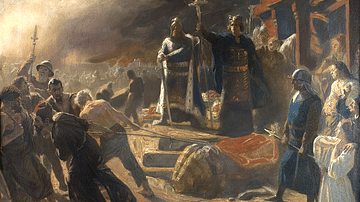
Definition
Slavs
The term "Slavs" designates an ethnic group of people who share a long-term cultural continuity and who speak a set of related languages known as the Slavic languages (all of which belong to the Indo-European language family). Little is known...

Definition
Samo
Samo (reigned 623/624-658 CE) was a king of the Slavs who was responsible for the foundation of the first recorded political entity of the Slavic people, usually referred to as Samo's Empire. Since writing was not introduced into Slavic culture...

Definition
Saint Cyril
Saint Cyril (aka Kyrillos and Constantine the Philosopher, d. 867 CE) was a Byzantine linguist, teacher, scholar and missionary who famously preached Christianity to the Slavs in Moravia with his brother Methodius during the 9th century CE...

Video
Unveiling Slavic Myths - A Conversation With Noah And Svetlana
Slavic cultures are far-ranging, comprising East Slavs (Russia, Ukraine, Belarus), West Slavs (Czech Republic, Slovakia, Poland) and South Slavs (the countries of former Yugoslavia plus Bulgaria), yet they are connected by tales of adventure...

Definition
Kievan Rus
Kievan Rus (862-1242) was a medieval political federation located in modern-day Belarus, Ukraine, and part of Russia (the latter named for the Rus, a Scandinavian people). The name Kievan Rus is a modern-day (19th century) designation but...

Definition
Hedeby
Hedeby (Old Norse: Heiðabýr; German: Haithabu) was an important stronghold in Viking Age Denmark from the 8th-11th centuries CE and, along with Birka in present-day Sweden, it was the most important Viking trading center in Europe. During...
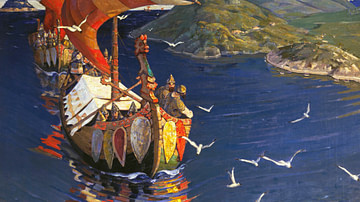
Article
Trade & Warfare in the Kievan Rus
Scandinavians from the island of Gotland began to spread throughout the Baltic region along the Russian rivers in the 700s. While the Vikings of Norway and Denmark from the 8th to 11th centuries are widely recognized as fearsome raiders and...
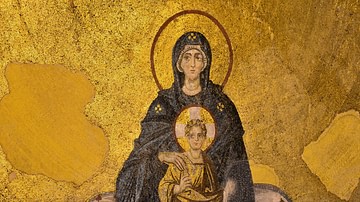
Definition
Byzantine Empire
The Byzantine Empire existed from 330 to 1453. It is often called the Eastern Roman Empire or simply Byzantium. The Byzantine capital was founded at Constantinople by Constantine I (r. 306-337). The Byzantine Empire varied in size over the...
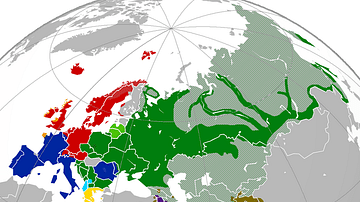
Definition
Indo-European Languages
The Indo-European languages are a family of related languages that today are widely spoken in the Americas, Europe, and also Western and Southern Asia. Just as languages such as Spanish, French, Portuguese and Italian are all descended from...
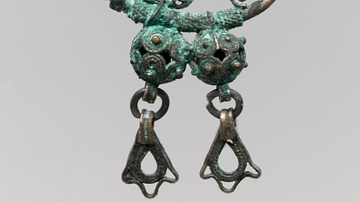
Definition
Avars
The Avars were a confederation of heterogeneous (diverse or varied) people consisting of Rouran, Hephthalites, and Turkic-Oghuric races who migrated to the region of the Pontic Grass Steppe (an area corresponding to modern-day Ukraine, Russia...